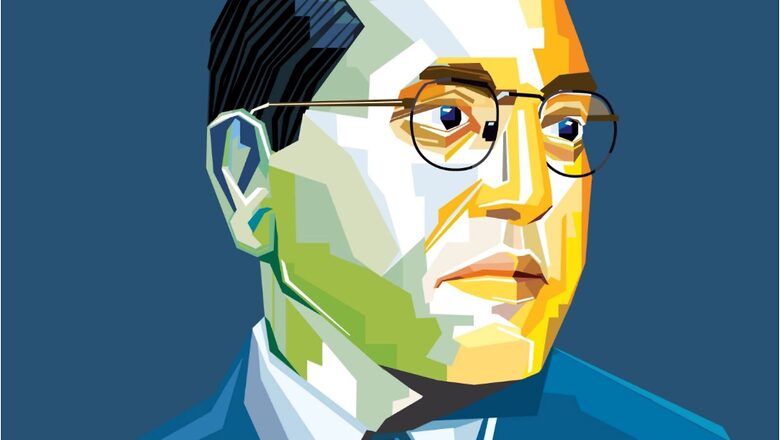
views
Only a couple of weeks ago, the nation paid rich tributes to the maker of our Constitution B.R. Ambedkar on the occasion of his birth anniversary. The timing for a national conversation on the implementation of Uniform Civil Code could not have been better. With the chief ministers of crucial states like Uttarakhand, Uttar Pradesh and Himachal Pradesh expressing strong intentions of having a Uniform Civil Code, a debate in this direction seems to have begun getting traction among the political and the academic class too.
Establishing a Uniform Civil Code is a constitutional prerogative and not merely a rhetorical narrative and is extremely significant from the perspective of equality in true sense. There is a robust foundation for UCC in the constitutional enumeration. Before we get into Article 15 that prohibits any sort of discrimination on the grounds of religion, race, caste, sex and place of birth etc. and Article 44 that categorically states that “The state shall endeavour to secure a Uniform Civil Code for the citizens throughout the territory of India”, I would draw your attention towards the preamble of our Constitution that is considered its soul and spirit and that categorically announces equality of status and opportunity. Moreover equality, beyond the idea of Constitution, has been a civilisational priority for us as a nation. The life and times of Jyotiba Phule, Savitribai Phule, Kabir and Ravidas are indicative of this deep-rooted faith in the notion of equal treatment for everyone regardless of caste and gender.
Equality is a constitutional promise and has been a matter of judicial contestations and political articulation in the course of last seven decades. Is there equality of law when it comes to issues like marriage and inheritance?There is one criminal law in the form of Indian Penal Code, 1860 and The Code of Criminal Procedure, 1973. Then why not have one civil code governing issues of marriage, divorce and succession etc.?
For Ambedkar, equality was an article of faith that must not be compromised. With respect to personal laws, he observed, “I personally do not understand why religion should be given this vast, expansive jurisdiction, so as to cover the whole of life and to prevent the legislature from encroaching upon that field. After all, what are we having this liberty for? We are having this liberty in order to reform our social system, which is so full of inequities, discriminations and other things, which conflict with our fundamental rights.”
Ambedkar has on multiple occasions spoken against the prevalent injustices faced by Muslim women on an everyday basis. In his book, Pakistan or the Partition of India, he has observed on pages 220-221 that “As a consequence of Purdah system a segregation of the Muslim women is brought about. Purdah deprives Muslim women of mental and moral nourishment. Being deprived of healthy social life, the process of moral degeneration must and does set in.”
There were protests in defence of Hijab earlier this year. I am certain Ambedkar if alive today would have vehemently disagreed with those supporting medievalism in the name of personal autonomy. In Pakistan or the Partition of India, Ambedkar further writes, “The existence of social evils among the Muslims is distressing enough. But far more distressing is the fact that there is no organized movement of social reforms among the Muslamans of India on a scale sufficient to bring about their eradication … they oppose any change in the existing practice.”
This, in fact, has been the biggest roadblock in the implementation of the UCC.
ALSO READ| OPINION: Uniform Civil Code Can End Systemic Discrimination under Personal Laws
Politics of Minority Appeasement
The Congress party is single-handedly culpable for institutionalising this politics in India. Be it the reversal of the progressive Shah Bano verdict in 1985 that mandated maintenance and support for divorced Muslim women to the tacit approval of triple talaq and Article 370. The struggle for equality remains a fundamental challenge for women in the Muslim community. Politics of minority appeasement is primarily responsible for the perpetuation of this struggle. The abolition of triple talaq is a case in point like the revocation of Article 370 in the Constitution of India that discriminated against women of Jammu and Kashmir.
Uniform civil code is an idea whose time has come. The CM of Uttar Pradesh Yogi Adityanath has announced that the government will hold Quami Sammelans to educate the masses on the merits of the UCC — the process of dialogue and discussion has started. Instead of mindless opposition, people or institutions who are against the idea of UCC must come forward and have a meaningful and solution-centric debate on the issue in the ultimate interest of the society.
Dr Guru Prakash Paswan is an Assistant Professor at Patna University, author and National Spokesperson of the Bharatiya Janta Party. The views expressed in this article are those of the author and do not represent the stand of this publication.
Read all the Latest Opinions here














Comments
0 comment